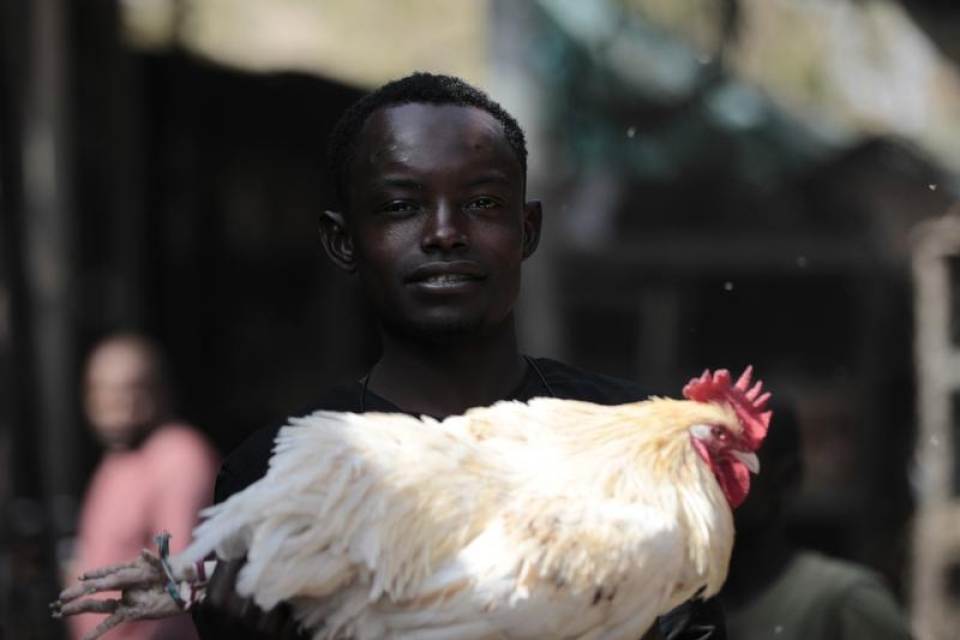
A man poses with a chicken at a local market in Gombe state, Nigeria, January 30, 2015. REUTERS/ Afolabi Sotunde
trust.org - Thomson Reuters Foundation - by Chris Arsenault - 20 Jul 2015
A highly contagious strain of avian flu is spreading across West Africa, decimating poultry farms and stoking fears the virus will jump from birds to humans, the U.N.'s food agency warned on Monday.
Markets and farms in Nigeria, Burkina Faso, Niger, Ivory Coast and Ghana have been hit with the deadly H5N1 virus over the past six months, the U.N.'s Food and Agriculture Organization (FAO) said.
If the virus continues to spread, it could affect more than 330 million people across West Africa, hurting food security and human health in a region still recovering from the Ebola crisis.
"Urgent action is needed to strengthen veterinary investigation and reporting systems... to tackle the disease at the root, before there is a spillover to humans," Juan Lubroth, head of the FAO's animal health division, said in a statement.
(READ COMPLETE ARTICLE)
(ALSO SEE RELATED ARTICLES IN THE LINKS BELOW)
Recent Comments